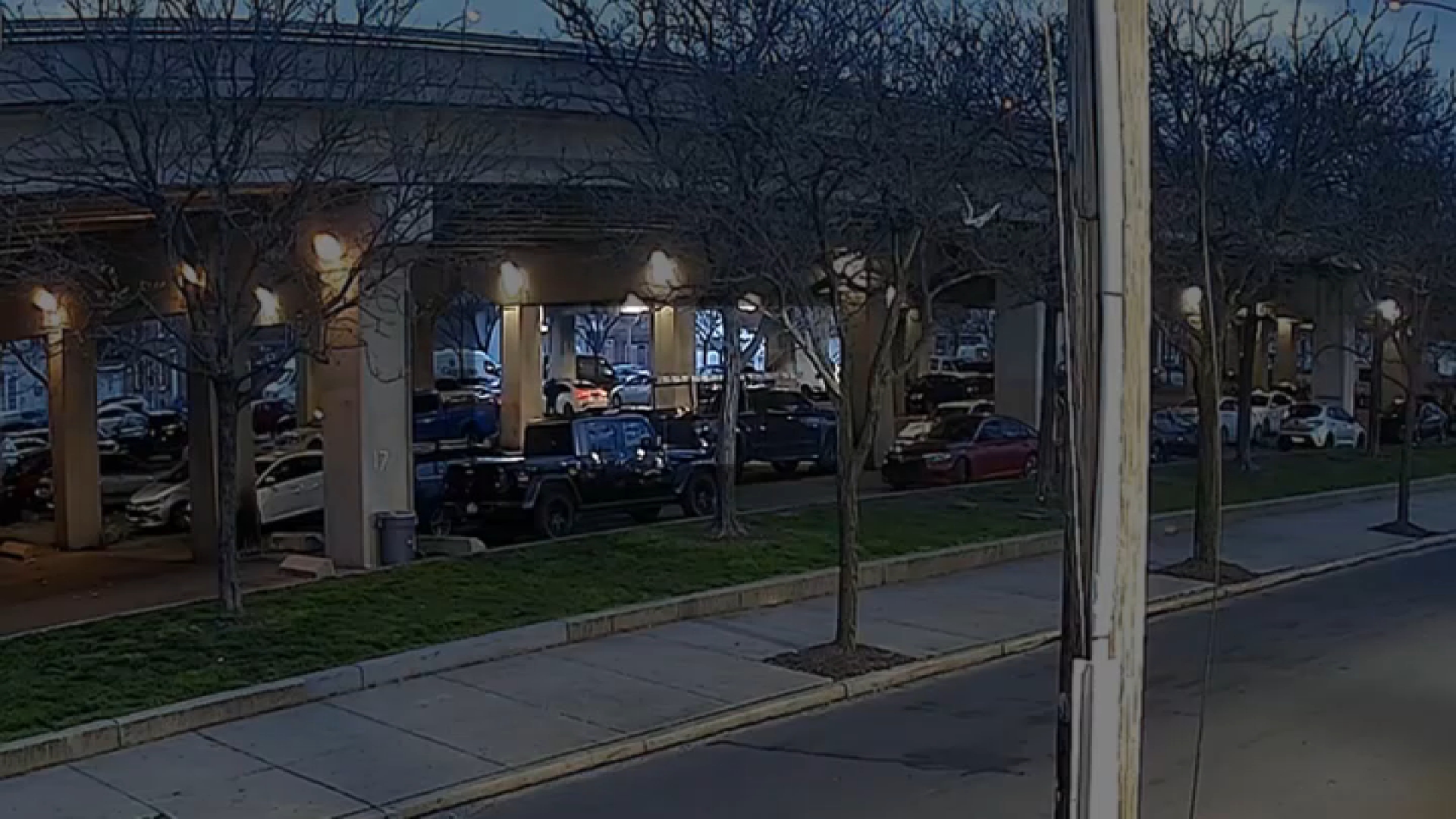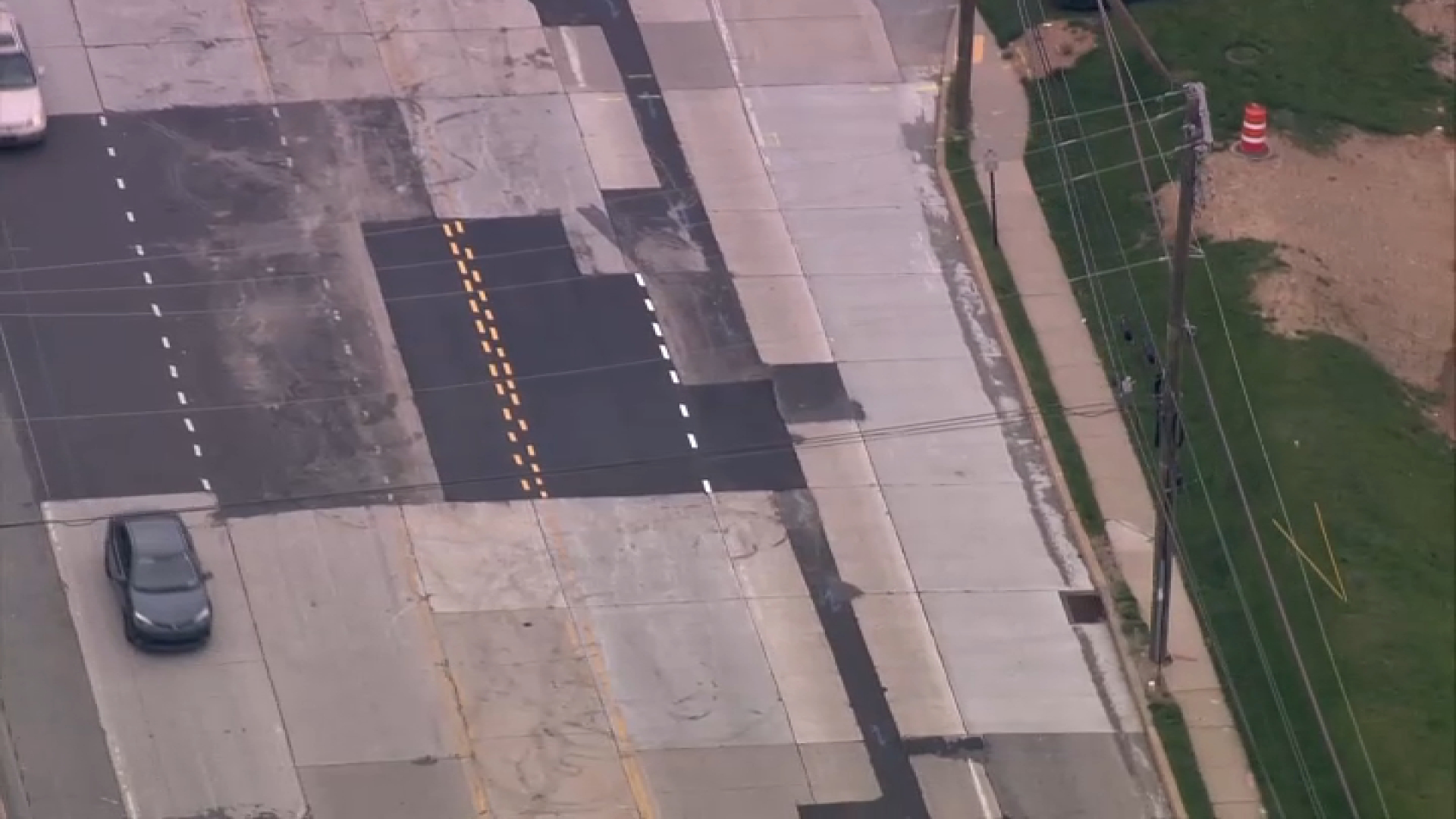Steel and iron and sweat and pride have been produced for nearly one and half centuries along the banks of the Saucony Creek in Kutztown.
The notion that it all came to an end Sunday -- that the sprawling McConway & Torley foundry complex will close and no longer churn out massive steel ingots or railroad car couplings or giant teeth for earth-scooping machines -- cannot, in Dennis Kocher's view, eclipse the importance of pinpricks.
Kocher's wife, Nancy, 62, is a diabetic. She pricks herself for a self-blood test four times a day, injects insulin and nearly died four years ago.
So even though Kocher worked at what is now called McConway & Torley for 46 years, it was not the prospect of losing his job that hurt the most when the plant closure was announced two months ago.
It was the secondary effect: that Nancy would be without a health care plan.
"It was like a bomb was dropped on me,'' Kocher said.
The plant had operated since 1869 under various names. The unexpected announcement on March 5 that the plant would close in two months set off a scramble for new jobs and, in many cases, health care coverage.
Local
Breaking news and the stories that matter to your neighborhood.
Kocher, one of 130 employees who were to lose their jobs, was about to turn 65. He faced long odds.
Aside from the frightening prospect of joblessness, employees wondered exactly why the Texas-based company that owned the plant decided to close it.
In a short, written statement, plant owner Trinity Industries of Dallas blamed the closing on decreased business.
Employees had other theories.
No thanks given
The Reading Eagle interviewed 10 McConway & Torley workers, most of whom were employed there at the time the shutdown was announced. Collectively, they had more than 144 years of work experience there and at least 70 years elsewhere in foundries or heavy industry.
There were suspicions that Trinity wanted to break the union that represented most employees and reopen the plant in the future, or that it wanted to transfer work to low-cost plants in Mexico, or even that the union helped precipitate the closing by seeking too much in labor negotiations.
There also was talk around Kutztown that Trinity did not like the rates charged by the borough's self-run electrical distribution system.
Angel Berrios of Reading, a 25-year employee, said the Kutztown plant was a good place to work. He made $18.73 an hour as a warehouse foreman and safety crew leader.
"Not much I can do about it,'' he said. "You have to accept the fact they are closing and move on.''
At the same time, it galled him that no severance pay was offered.
"Companies find a way to make more money someplace else, and we lose our jobs,'' he said. "I've seen these people throw money around like it's water, and now they are closing the place down and they don't even say 'thank you.'"
Differing views
The March 5 letter from McConway & Torley to the Glass, Molders, Pottery, Plastics and Allied Workers International Union informed it that permanent plant closure would occur May 5.
David Yopconka, the plant manager, was interviewed inside the lobby of the plant, where old photos depict its rich history. Yopconka said Trinity's McConway & Torley operation was hurt by a downturn in large construction and mining.
"Market share is just at the point where we cannot support all the facilities,'' Yopconka said. "We care about our employees and we want to make the best transition for them.''
Some, he said, would likely be offered jobs at other locations.
Yopconka referred other questions to Nancy Farrar, a public relations specialist for Trinity in Texas. She answered requests for an interview with a company executive by referring to a six-sentence written statement, which said the action was due to a downturn in demand for products in mining and industry.
The last contract between the union and the company expired in 2011, according to Eric Fisher, president of Local 361 of what some call the "GMP'' union. He said the most recent bargaining session was last summer.
Fisher, who was making $23 an hour after 36 years at the plant, said he believed the closing came about because Trinity wanted to break the union.
"These people are ruthless,'' he said. "We are not humans out there. We are numbers.''
Heat and weight
Inside the complex, workers poured fantastically hot, molten metal into sand molds.
The finished products might be 40,000-pound solid steel ingots or railroad car couplings or the big digging machine teeth, which might weigh more than 300 pounds each.
"A lot of heavy stuff and fire. It's like working in hell,'' was how Herb Jones, 51, Fleetwood, described the foundry, where he worked the last two years after a 23-year stint at East Penn Manufacturing near Lyons. He made $15.31 an hour as a forklift operator at the foundry.
But it's really kind of fun,'' Jones added. "You just have to watch yourself.''
There were machinists, grinders, welders, molders, core makers and maintenance mechanics. Berrios, a warehouse foreman, described the pride of long association with hardworking colleagues.
"I loved the place for so many years,'' he said. "It was my home. Paid my bills. Took care of my family.''
Melvin Santiago, 53, of Muhlenberg Township said he was earning more than $50,000 a year at McConway & Torley after working there for 16 years, split into two stints.
"I liked what I was doing and the company treated me good,'' he said. "That's why I came back a second time.''
Santiago and his wife care for three grandchildren. A retired Army veteran with three overseas deployments -- including two tours of duty in Iraq -- Santiago said he has kept his resume up to date.
He said, "I've been around. In the military, they always tell you to keep things up to date.''
Plants in Mexico
Some workers said they heard rumors Trinity would send some of the plant's work to Mexico.
"I feel the country is going this way. The manufacturing is all going overseas,'' said Scott Cunnius, 52, Fleetwood, a forklift operator who made $14.50 an hour. ``In Pennsylvania, basically, we are just going to be warehouses after a while.''
As a publicly traded company, Trinity is required to file reports with the Securities and Exchange Commission. Its 2012 annual report to the SEC showed it earned net income of $255.2 million on revenue of $3.8 billion.
It had 15,490 employees, and about 5,900 of them worked in Mexico.
"We manufacture rail cars, containers, tank heads, structural wind towers, utility structures, parts and steel components, and other products at our Mexico facilities for local consumption as well as for export to the U.S. and other countries,'' the report said.
Timothy R. Wallace, the company's chairman, CEO and president, received total compensation of $9,535,414 in 2012, according to the report.
Thirty-five workers at the McConway & Torley plant had 10 or more years of experience in the plant. Thirteen had 20 or more years.
Xavier Mendoza, 45, a Reading resident who worked two years at McConway & Torley and was a "heat treat'' operator, said he could not criticize Trinity's action on the plant. He faulted the union leadership for not agreeing to less expensive terms.
Without the union, he said, the company might have obtained cheaper labor and been free to shift workers around and change their schedules to best suit production.
Although it might sound unappealing, Mendoza said, at least the workers would still have jobs.
Surprise announcement
The plant that became McConway & Torley got its start four years after the end of the Civil War, when a pair of German immigrants created a foundry by the banks of the Saucony Creek.
It evolved into one of the industrial hubs of eastern Berks County. Its employee roster surpassed 300 at times, and its products found use across the nation.
For more than a century, its operation revolved around iron. After an overhaul, it worked with molten steel.
Kutztown used-book dealer and history author Brendan Strasser said the plant was Kutztown's biggest employer for decades.
"It is dirty work and hard work, and I admire anyone who could stick it out,'' Strasser said.
The plant consumed large amounts of electricity provided by the borough.
In March 2012, for example, it used 1.5 million kilowatt hours, compared with a typical household use of up to 2,000 kilowatt hours, said borough Electric Department Superintendent Steven Diehl.
McConway & Torley had asked for electric rate reductions. Other customers had done the same, Borough Manager Gabriel Khalife said.
"We can't sell our power for less than we buy it for,'' he said.
The announcement of the closing caught many by surprise, including at least one supplier.
East Penn Welding, located near the plant on Maple Street, did repairs, fabricating and welding on short notice for McConway & Torley, according to East Penn spokeswoman Nina Bailey.
"We were quoting jobs the day before they said they were closing,'' she said. "We had no idea.''
Relief and fear
The scramble for health care and jobs is on.
Last month, several workers said, the company gave many employees permission to stay home and collect pay through the closing date.
Cunnius is looking for a job for the fourth time in 12 years.
"I am 52 years old, and the job market is so flooded with people that it is probably going to be very hard, even though I have an excellent work record,'' he said.
Kocher, who is recording secretary of Local 361, started at the plant in 1966, when it was called Kutztown Foundry & Machine. In the 1990s, he left for one year, then returned.
The closing announcement left Nancy Kocher fearful. She, too, had worked all her life and recently had been laid off.
"Sometimes when I think about it, I just feel like giving up,'' she said. ``What was it worth, all that work?''
Then, the Kochers got great news.
Late last month, Dennis was offered a full-time job at a Schuylkill County manufacturer, with health care coverage.
"It took a lot of pressure off us,'' Nancy said afterward.
Dennis Kocher's new job, by coincidence, is near the home of Glenn "Pappy'' Boyer, who was laid off from the McConway & Torley plant at the end of 2012. Boyer, 58, was under the impression - right up to the day the closing was announced -- that he was on a callback list.
He had open heart surgery about five years ago.
"I had an aneurysm that was ready to blow, and I went to Geisinger (Medical Center in Montour County) in a helicopter,'' he said.
The aneurysm was repaired and an artificial heart valve was implanted.
Boyer, who had worked in heavy industry for 25 years, recovered sufficiently to start working at McConway & Torley in 2011.
Now he is jobless and without health insurance.
"I was making $15.61 when I got laid off, and I was having trouble with that, with the bills,'' Boyer said. "I don't know how you're supposed to live anymore.''



